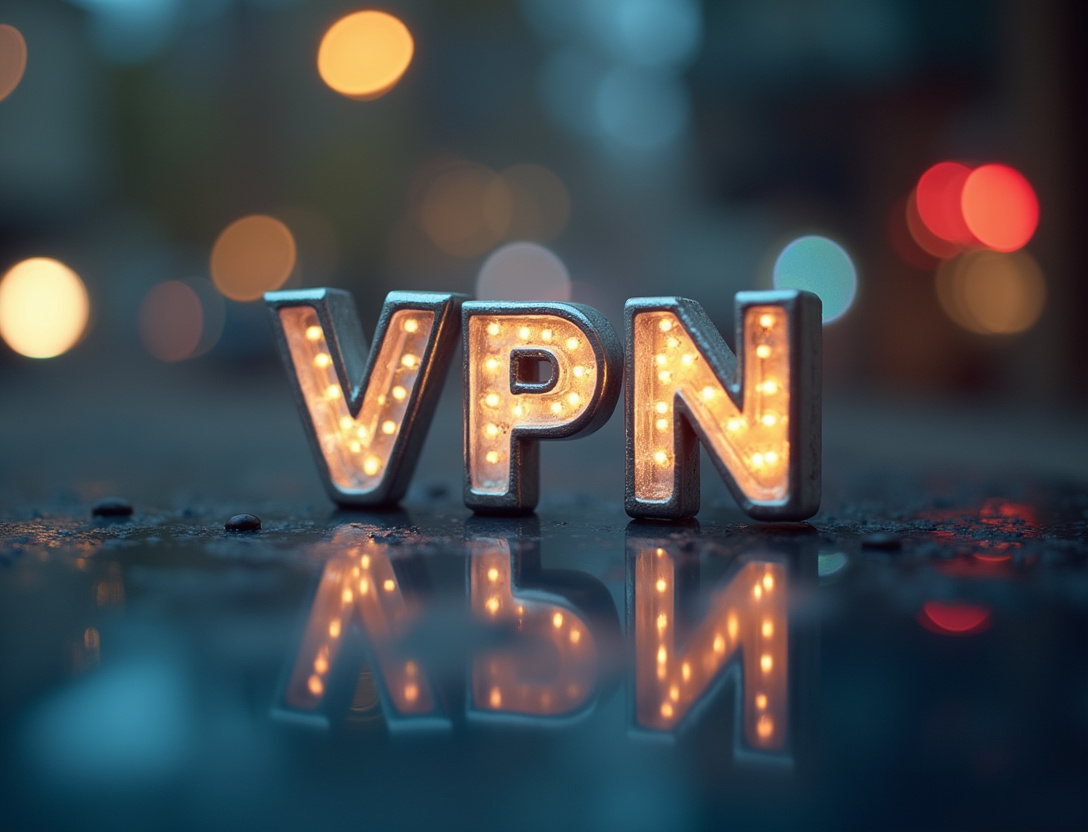VPNs for Online Publishing: Protecting Author Submissions

Table of Contents
The digital landscape has fundamentally reshaped the publishing industry, creating unprecedented opportunities for authors, publishers, and readers alike. Online platforms have democratized access to information, enabling independent voices to reach a global audience and fostering vibrant communities around shared interests. However, this digital revolution has also introduced new challenges, most notably in the realm of security.
With increasing frequency and sophistication, cyberattacks threaten the integrity of online publishing, targeting sensitive data, intellectual property, and even the fundamental principles of free expression. In this environment, the need for robust security measures is paramount, and Virtual Private Networks (VPNs) have emerged as an indispensable tool for online publishing platforms seeking to protect their assets and safeguard their operations. This article explores the critical role of VPNs in securing author submissions and ensuring editorial protection within the online publishing ecosystem.
We will examine the specific threats faced by online publishers, explore the ways in which VPNs mitigate these risks, and provide practical guidance on implementing VPN solutions to create a more secure and resilient publishing environment. From individual authors submitting their manuscripts to editorial teams collaborating on sensitive projects, the entire online publishing process is vulnerable to a range of cyber threats. Author submissions, often representing years of creative effort, contain unpublished works and personal information that are highly attractive to malicious actors.
Editorial content, including drafts, revisions, and confidential communications, constitutes a valuable trove of intellectual property that must be protected from unauthorized access, modification, or deletion. A data breach can have devastating consequences, leading to financial losses, reputational damage, and legal liabilities. In addition to financial considerations, security breaches can also undermine the trust that authors and readers place in online publishing platforms.
When authors lose confidence in the security of a platform, they may be less likely to submit their work, reducing the diversity and quality of content. Similarly, readers who feel that their privacy is not being respected may be less likely to engage with the platform, leading to a decline in readership and revenue. By providing a secure and encrypted tunnel for data transmission, a 'publishing VPN' effectively shields author submissions from interception and unauthorized access.
When an author submits a manuscript through a VPN-protected connection, their data is encrypted, rendering it unreadable to anyone who lacks the decryption key. This prevents hackers, eavesdroppers, and even internet service providers (ISPs) from monitoring or intercepting the transmission. Furthermore, a VPN masks the author's IP address, providing an additional layer of anonymity and making it more difficult to track their location or online activity.
The same principle applies to editorial communications. When editors use a VPN to exchange drafts, revisions, and confidential information, their communications are protected from eavesdropping and interception. This is particularly important for editorial teams working remotely or collaborating across different geographical locations.
A VPN ensures that their communications remain private and secure, regardless of their physical location or the security of their local networks. The benefits of using a robust VPN extend far beyond protecting individual communications. By implementing a VPN across the entire online publishing platform, organizations can create a secure and trusted environment for all users.
A VPN provides a secure and encrypted connection to the platform, preventing unauthorized access to sensitive data and resources. This includes editorial systems, databases, file servers, and other critical infrastructure.
'Author submission security' is paramount in the digital publishing world. With the increasing reliance on online platforms for submission and review processes, the potential for unauthorized access and data breaches has grown significantly. A VPN provides a crucial layer of protection by encrypting the data transmitted between the author's device and the publishing platform's server.
This encryption scrambles the data, making it unreadable to anyone who might intercept it during transit. Imagine an author diligently crafting their manuscript, pouring hours of research and creative energy into their work. They submit it through an online portal, unaware that their internet connection is vulnerable to eavesdropping.
Without a VPN, their submission could be intercepted by malicious actors seeking to steal their intellectual property or gain unauthorized access to their personal information. A VPN acts as a secure conduit, ensuring that the author's work reaches its intended destination without being compromised. The encryption provided by a VPN is particularly important when authors are using public Wi-Fi networks, which are notoriously insecure.
Public Wi-Fi hotspots are often targeted by hackers who set up fake networks or intercept traffic using readily available tools. Connecting to an unsecured public Wi-Fi network without a VPN is like sending a postcard through the mail – anyone along the way can read its contents. A VPN creates a private and secure connection, even when using a public Wi-Fi network, shielding the author's data from prying eyes.
In addition to protecting against external threats, a VPN can also provide a layer of anonymity for authors who wish to protect their identities or communicate with publishers anonymously. This is particularly relevant for authors writing on controversial topics or in politically sensitive environments. By masking their IP address, a VPN makes it difficult to trace their online activities back to their physical location.
This can help protect them from harassment, surveillance, or even legal repercussions. For whistleblowers, investigative journalists, and other authors who face potential risks for their work, a VPN can be a vital tool for protecting their safety and security. The benefits of 'author submission security' extend beyond individual authors.
By implementing robust VPN solutions, online publishing platforms can build trust with their contributors and attract high-quality submissions. When authors feel confident that their work is protected, they are more likely to submit their best manuscripts and engage in open and honest dialogues with editors. This can lead to a more vibrant and productive publishing ecosystem.
A secure submission process can also enhance the reputation of the publishing platform, attracting more authors and readers. In today's digital world, security is a key differentiator, and online publishing platforms that prioritize 'author submission security' are more likely to thrive in a competitive market. Furthermore, a VPN can help online publishing platforms comply with data privacy regulations, such as the General Data Protection Regulation (GDPR) and the California Consumer Privacy Act (CCPA).
These regulations require organizations to protect the personal data of their users, and a VPN can be an important tool for achieving compliance. By encrypting data and masking IP addresses, a VPN helps to minimize the risk of data breaches and protect the privacy of authors and readers. Implementing a VPN solution is not just a matter of technological compliance; it is a strategic investment in the long-term success of the online publishing platform.
By prioritizing 'author submission security', online publishing platforms can safeguard their intellectual property, protect the privacy of their users, and build a trusted and thriving community.
'Editorial protection' is a cornerstone of maintaining the integrity and confidentiality of the publishing process. It encompasses safeguarding sensitive information related to manuscripts under review, communications between editors and reviewers, contract negotiations, and other proprietary data. A breach in editorial security can have severe consequences, ranging from the premature release of unpublished works to the exposure of confidential information, potentially leading to financial losses and reputational damage.
A 'VPN for media' acts as a primary defence mechanism in protecting editorial content. Editorial teams often collaborate remotely, using various online tools and platforms for communication and file sharing. Without a VPN, these communications are vulnerable to interception, and sensitive documents can be accessed by unauthorized parties.
A VPN encrypts all internet traffic, creating a secure tunnel that shields editorial communications from eavesdropping and ensures the privacy of sensitive data. The implementation of a VPN extends beyond simply encrypting data in transit. It also provides a layer of access control, allowing publishers to restrict access to specific resources based on user roles and permissions.
Editors can be granted access to editorial systems and databases, while restricting their access to other parts of the network. This ensures that only authorized personnel can access and modify sensitive information, reducing the risk of internal breaches. In addition, VPNs can be configured to enforce multi-factor authentication (MFA), adding an extra layer of security to the login process.
MFA requires users to provide multiple forms of identification, such as a password and a security code sent to their mobile device, making it more difficult for unauthorized individuals to gain access to editorial systems, even if they have obtained a valid username and password. 'Editorial protection' also involves safeguarding against data breaches and malware infections. Online publishing platforms are often targeted by cybercriminals seeking to steal intellectual property or disrupt operations.
A VPN helps to prevent malware from infiltrating the system by routing traffic through secure servers that are equipped with advanced security features, such as firewalls and intrusion detection systems. These security features can detect and block malicious traffic, preventing malware from reaching editorial systems and infecting sensitive data. Furthermore, VPNs can be used to create secure, isolated networks for editorial teams, preventing them from accidentally accessing or downloading malicious content.
By segmenting the network, publishers can limit the damage caused by a potential breach and prevent malware from spreading to other parts of the system. Securing peer review processes is particularly important for maintaining the integrity of scholarly publishing. Peer reviewers often have access to unpublished manuscripts and sensitive research data.
A VPN ensures that their communications with editors are secure and prevents unauthorized access to confidential information. VPNs can also be used to protect the anonymity of peer reviewers, preventing authors from identifying who reviewed their work. This can encourage reviewers to provide honest and unbiased feedback, improving the quality of the peer review process.
In order to maintain 'editorial protection' a comprehensive security strategy is required and includes regular security audits, employee training, and incident response plans. By taking these steps, online publishing platforms can create a more secure and resilient editorial environment and protect their valuable intellectual property. 'Editorial protection' using VPNs ensures all content remains secure and private, this builds the foundations for open discussion and feedback.
The concept of 'intellectual property' is central to the publishing industry. It encompasses the original works of authors, researchers, and creators, including manuscripts, articles, books, and other forms of content. Protecting this 'intellectual property' from unauthorized use, reproduction, or distribution is a paramount concern for online publishing platforms.
A publishing VPN plays a critical role in safeguarding 'intellectual property' by providing a secure and encrypted environment for all stages of the publishing process, from author submission to final publication. One of the most significant threats to 'intellectual property' in online publishing is copyright infringement. Unauthorized copying and distribution of copyrighted material can lead to substantial financial losses for publishers and authors.
A VPN helps to prevent copyright infringement by making it more difficult for individuals to access and download copyrighted material without authorization. By masking IP addresses and encrypting traffic, a VPN can deter individuals from engaging in illegal online activities, and make it more difficult for them to be tracked down if they do. In addition to preventing copyright infringement, a VPN can also protect against plagiarism.
Plagiarism is the act of presenting someone else's work as your own, whether intentionally or unintentionally. A VPN can help to prevent plagiarism by ensuring that authors and editors have access to reliable and secure research resources. By connecting through a VPN, users can access scholarly databases, online libraries, and other research materials without fear of their online activity being monitored or their data being compromised.
Furthermore, a VPN can help to protect the confidentiality of unpublished manuscripts and research data. Before a work is published, it is considered confidential 'intellectual property' and must be protected from unauthorized access. A VPN ensures that manuscripts under review, research data, and other confidential information are transmitted and stored securely.
By encrypting all traffic and providing secure access controls, a VPN can prevent unauthorized individuals from accessing or disclosing confidential information. The use of a 'publishing VPN' can also provide legal benefits in the event of a copyright dispute. If a publisher is accused of copyright infringement, they can use evidence that they had implemented a robust VPN solution to demonstrate that they took reasonable steps to protect the 'intellectual property' of others.
This can help to mitigate their liability and avoid costly legal settlements. It is crucial for online publishing platforms to implement comprehensive security measures to protect 'intellectual property' from various threats. Regular security audits, employee training, and incident response plans are some essential components of an effective security strategy.
VPNs can protect authors, publishers and other parties that depend on the 'intellectual property' remain secure and out of the wrong hands. They enhance access control to critical information which can also allow for faster problem identification and reduce the amount of time required for incident response. By implementing robust security measures and promoting a culture of security awareness, online publishing platforms can protect their valuable 'intellectual property' and maintain the trust of their authors and readers.
'Intellectual property' should be treated as a valuable asset that adds value and protects the parties involved. The publishing VPN assists with managing safe practices when it comes to 'intellectual property' and ensures that the content created and distributed is protected and secure.
In the dynamic world of online publishing, adopting a 'VPN for media' is not merely a technological upgrade; it's a strategic imperative for safeguarding the entire publishing ecosystem. From the initial author submission to the final dissemination of content, every stage is vulnerable. Securing these channels ensures the integrity of published works, protects sensitive data, and reinforces trust among stakeholders.
The benefits of a robust VPN implementation extend beyond simple encryption. It's about creating a secure environment that fosters creativity, collaboration, and the unhindered flow of information. The security measures ensure a safe space for authors, editors and other contributors.
In a landscape challenged by copyright infringements and information leaks, the 'VPN for media' acts as the primary defense, enabling publishers to maintain control over their assets and ensure the longevity of their work. The 'editorial protection' that VPN provide ensures secure and confidential communication and operations. The use of publishing VPNs is directly linked to 'author submission security', as safety and security protocols are in place to protect the work from the author to publication.
Ultimately, prioritizing both of those security aspects contributes to the protection of valuable 'intellectual property' that all players depend on. A media publishing VPN, when configured correctly can enhance the media sector by offering a solution to combat any potential risks that could be prevalent to media and publishing. It strengthens the security functions with the ability to encrypt all content to make it readable and can only be accessed via authenticated protocols.
The VPN for media ensures that access is only granted via a secure method. The VPN allows for remote work as it mitigates the risks associated with unsafe networks. This is an essential functionality as remote collaboration has become more required in the media sector.
The protection the VPN provides allows remote teams or access. All measures support a safe and secure work environment between all parties. As the media sector continues to evolve, VPNs must be adapted so that the security and technical levels meet that evolution.
The ever changing landscape requires media corporations to remain safe and robust at a technical level. The ability to customize security tools with changing trends is also what should become a requirement so that media entities remain robust and protected from the advanced and evolving technologies surrounding us. There should also be comprehensive training so media parties are aware of the technical knowledge required for protection.
This will empower people to act appropriately and take measures to further prevent risks. Therefore, using a 'publishing VPN' needs consistent monitoring and maintenance services to ensure security measures are consistent, and staff member training ensures all parties are in alignment and on the same page when it comes to online security. The security measure is imperative for creating a solid publishing ecosystem that guarantees security and maintains the trustworthiness of all parties.
By taking proactive measures, publishing entities can stay on top of the ever-evolving risks that exist today for the overall protection of all work and content distribution being handled through a 'publishing VPN'. ''
Stay Updated
Get the latest VPN news, tips, and exclusive deals to your inbox.




